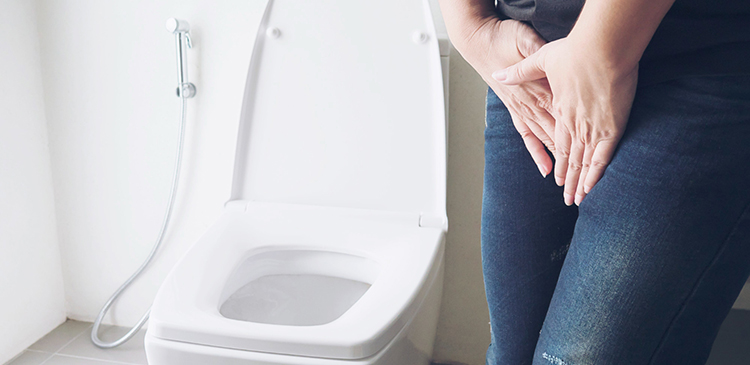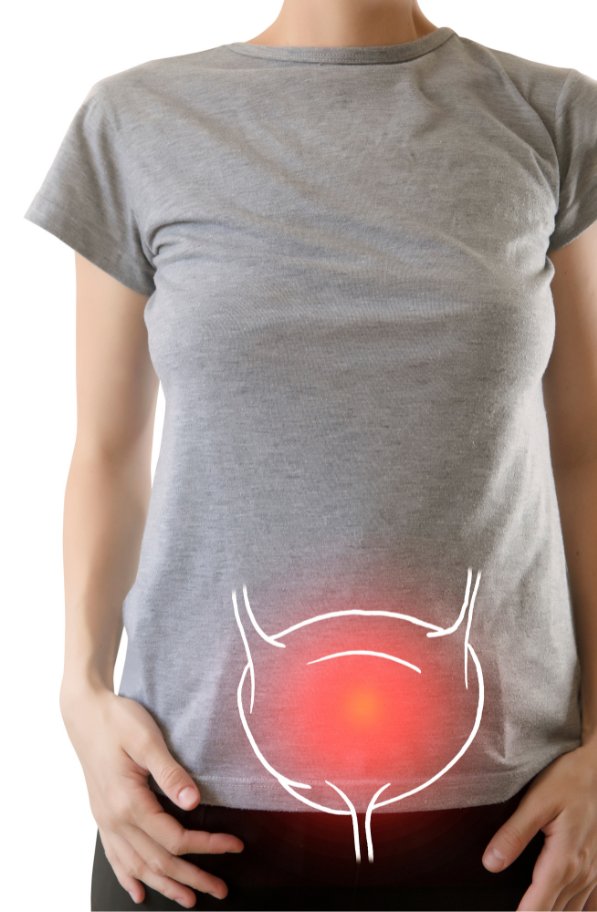Leaking Urine With Coughing, Sneezing, Laughing? Pelvic Floor PT Can Help!

Me: ‘Any more symptoms that you would like to tell me about?’
Patient: avoids eye contact ‘Well, sometimes when I laugh/cough/for no reason, I, you know,’ in a whisper, ‘leak.’
This is one of the most regular conversations I have with new patients.
Urinary incontinence (UI), whether you are leaking a little or a lot, is one of the main reasons people seek out a Women’s Health Pelvic Floor PT, but people feel so much shame about it! I get it, nobody wants to be dribbling pee throughout the day, but it is surprisingly common. Statistics vary, but in a study of 6,000 women aged 30 to 90, over half experienced UI at some point in their lifetime. Although it is more common as you age, over a quarter of the women surveyed between 30-39 had experienced urinary incontinence. And in a different survey of almost 2,000 women between the ages of 15-25 who had never been pregnant, 12.5% experienced UI.
I wish people knew how widespread UI is because something very simple can be done about it, something which takes just ten minutes a day! Yup, you guessed it, pelvic health physical therapy works wonders for UI!
What Causes Urinary Incontinence?
Sometimes it’s easy to determine what triggered UI—pregnancy, high-impact exercise, pelvic surgery—but other times, it’s less clear.

There are different types of incontinence, but the most common is stress incontinence, which is when you get that little leak when you cough, laugh, run for the bus, etc. These activities place pressure on the bladder, and, for whatever reason, the pelvic floor muscles can’t do their job properly to prevent that little dribble of pee escaping.
If the muscles in your pelvic bowl become dysfunctional often they are weakened and overstretched—and as a result they struggle to engage and respond effectively. The pelvic floor has many jobs and is key for supporting the bladder. The contraction and release of the pelvic floor muscles at the appropriate time are what help you urinate when you actually want to. So when they are working properly, you will not get that little leak!
Things that trigger and exacerbate urinary incontinence:
- Pregnancy and childbirth
- Many forms of exercise- from running, to gymnastics, to weight-lifting
- Chronic strain on the muscles and/or ligaments of and surrounding the pelvic floor, which can be caused by chronic constipation, a chronic cough, etc.
- Poor posture
- Hormonal changes, e.g. the menopause
- Stress, depression, and anxiety
- Too much caffeine (unfortunately)!
Physical Therapy to Treat Urinary Incontinence
Before I jump into the treatment, it’s important to acknowledge that improving pelvic floor function means more than just better bladder control. UI affects quality of life and how women feel about themselves, leading to shame, depression, and anxiety. Treatment is aimed at not only addressing your pelvic floor, but the strength and stability in your lower back, hips, and pelvis, so you can feel more confident within your body.
Physical therapy for UI is empowering.
A pelvic floor or women’s health specialist PT not only has specialized knowledge of this area but they also understand the emotional impact UI can bring. After assessing your pelvic floor, your PT will design a regimen of daily exercises perfectly suited to your needs. And the good news? A well-functioning pelvic floor not only means better control of your bladder but greater core strength and physical ease all around!
In my clinic, I like to assess and help improve posture if needed, as this also helps improve pelvic floor function. As a yoga therapist, I also offer relaxation and well-being exercises because UI is stressful, and unfortunately, stress can worsen incontinence!
If you are experiencing UI, make an appointment with Sylvie today!
–
Author: Sylvie Le, DPT, PYTC



